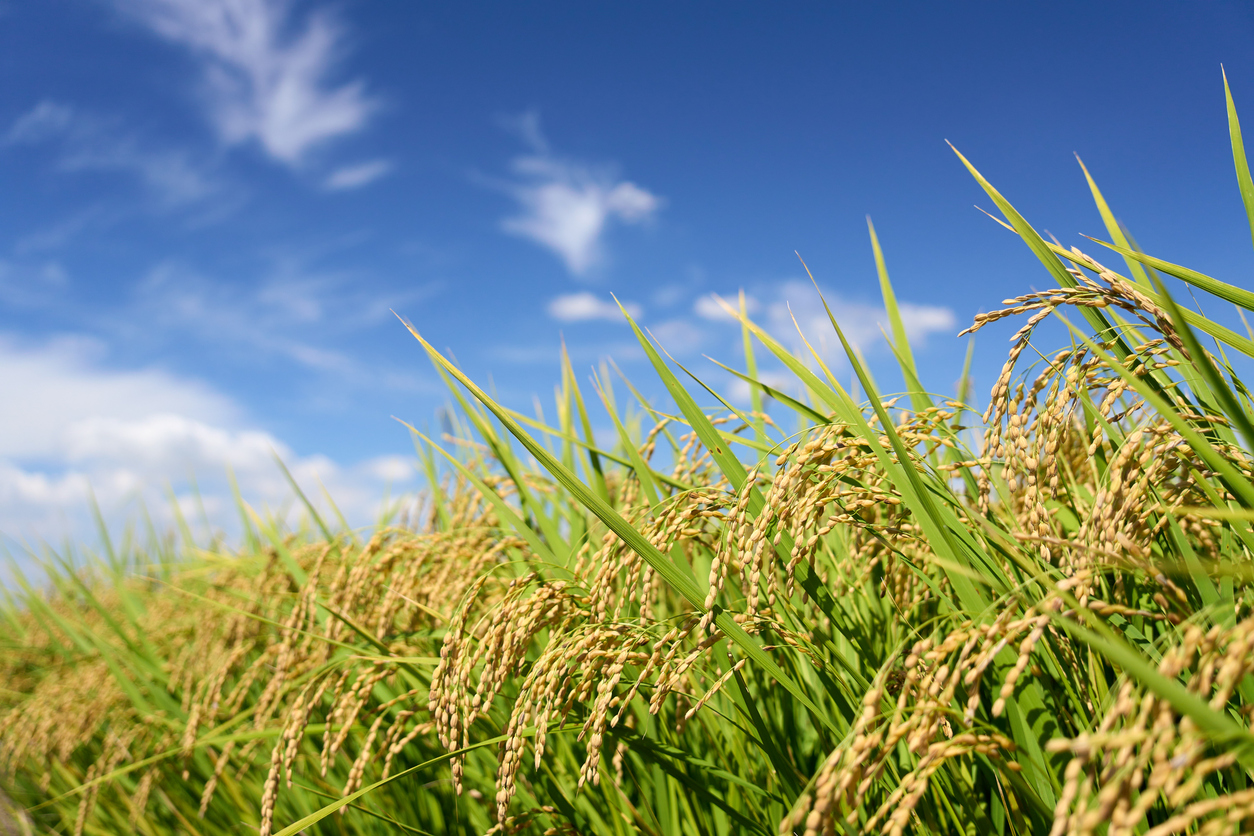
Research Pinpoints Key Gene in Enhancing Drought Tolerance in Rice
March 5, 2025| |
Hunan Agricultural University researchers reported a chalcone isomerase gene that confers drought tolerance to rice through scavenging reactive oxygen species (ROS) via flavonoid and SBA metabolic pathways. Their findings are published in the March 2025 issue of The Crop Journal.
Chalcone isomerase gene (OsCHI) is a vital gene in flavonoid production and in the abiotic stress response of rice plants. Thus, the researchers investigated the specific role of OsCHI3 in drought tolerance. They overexpressed the gene in rice plants and observed significant improvement in drought stress tolerance. On the other hand, deletion of the gene using CRISPR led to a reduction in the drought tolerance of rice plants. This response was reversed when the plants were exposed to ABA treatment.
Further analyses revealed that flavonoids regulated by OsCHI3 not only scavenge reactive oxygen species (ROS) but also increase drought tolerance in rice by stimulating ABA biosynthesis through the regulation of OsNCED1 and OsABA8ox3 expression.
The findings of the study contribute new insights into breeding drought-tolerant rice varieties.
Read the research article in The Crop Journal.
| |
You might also like:
- Pocket K No. 32: Biotechnology for the Development of Drought Tolerant Crops
- Pocket K No. 37: Biotech Rice
- Scientists Grow Meat Inside Rice Grains
Biotech Updates is a weekly newsletter of ISAAA, a not-for-profit organization. It is distributed for free to over 22,000 subscribers worldwide to inform them about the key developments in biosciences, especially in biotechnology. Your support will help us in our mission to feed the world with knowledge. You can help by donating as little as $10.
-
See more articles:
-
Plant
- Research Pinpoints Key Gene in Enhancing Drought Tolerance in Rice
- Study Reveals Hybrid Stacking in Maize Do Not Contribute Unintended Effects
- Ethiopia Approves GM Maize and Cotton for Commercial Production
- GM Crops to Help Combat Food Insecurity
- Safety Assessment Shows GA21 x T25 Maize as Safe as Conventional Counterpart
-
Food
- FSANZ Calls for Comment on Food Made from Insect-Protected GM Soybean COR23134
- Indonesia Requires Labeling for Food Products with at Least 5% Genetically Engineered Ingredients
-
Environment
- Amaranth Genomes Reveal Secrets of Herbicide Resistance
-
Read the latest: - Biotech Updates (January 28, 2026)
- Gene Editing Supplement (January 28, 2026)
- Gene Drive Supplement (February 22, 2023)
-
Subscribe to BU: - Share
- Tweet

